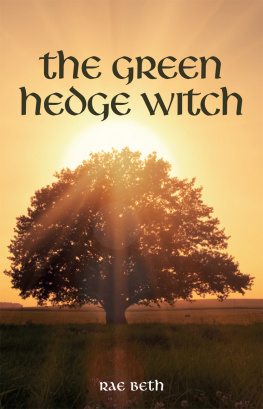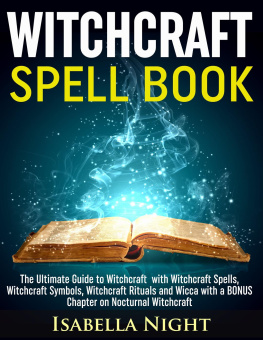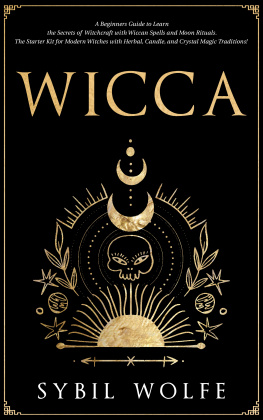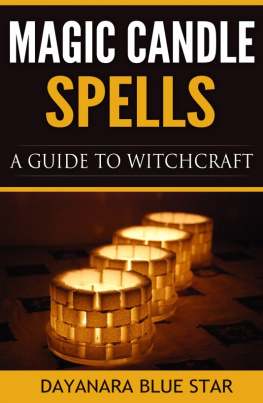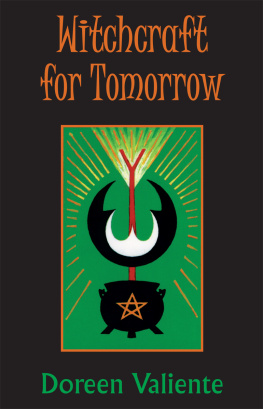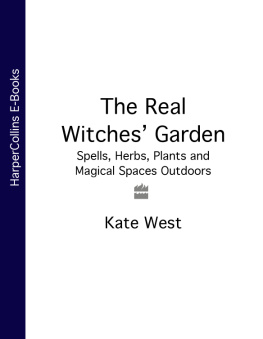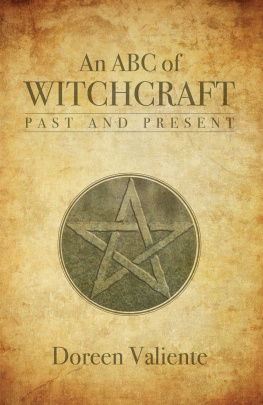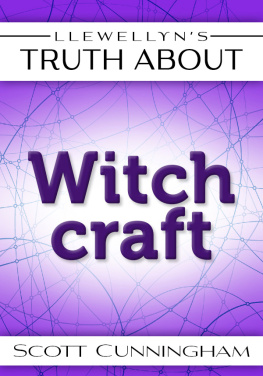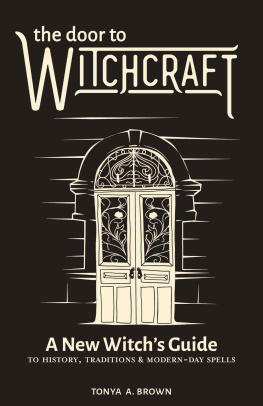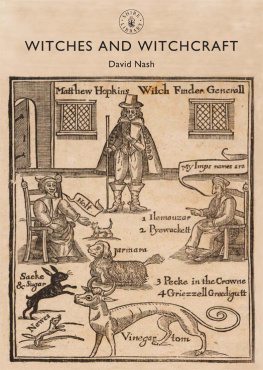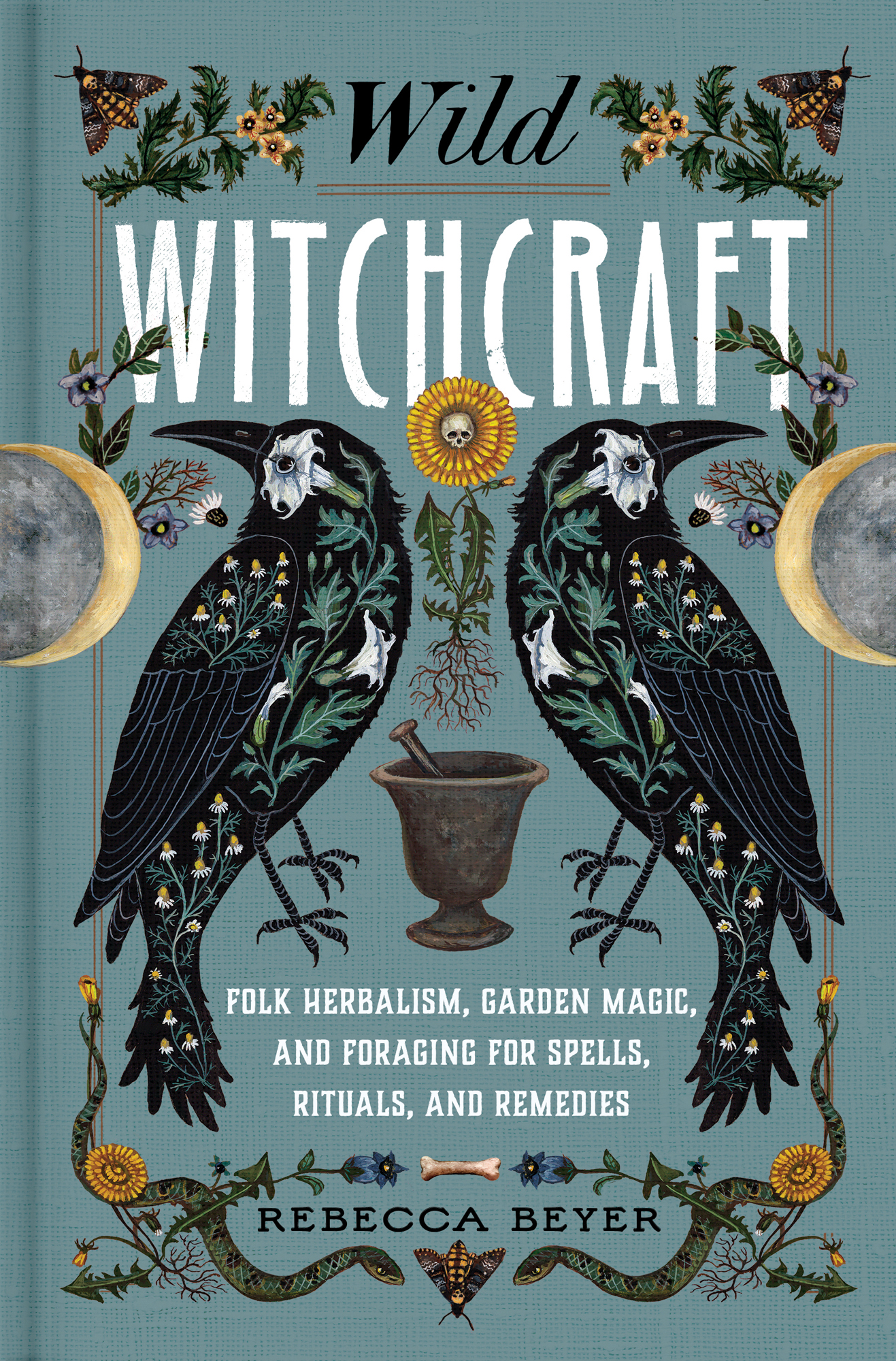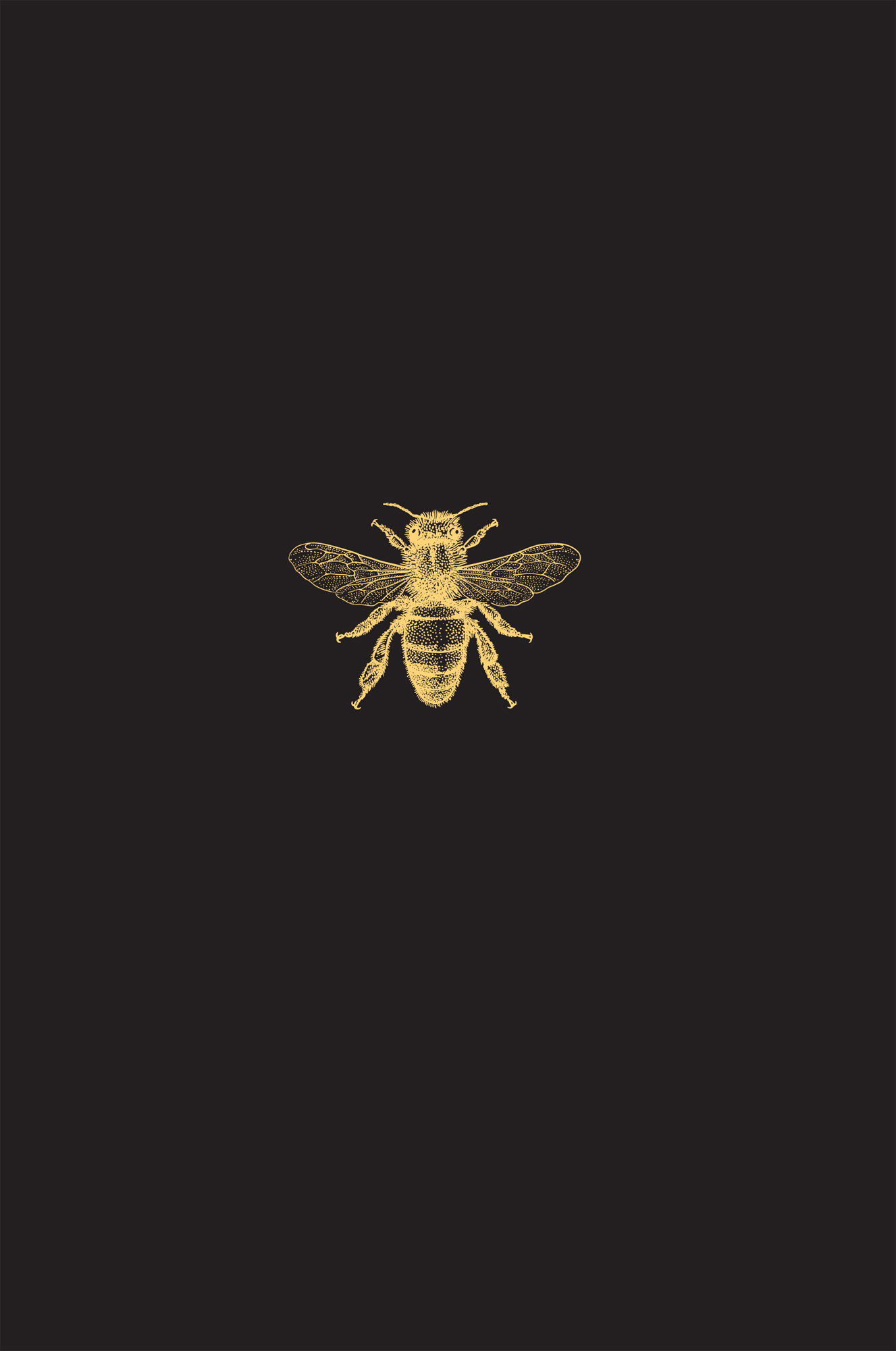Contents
Guide
Wild Witchcraft
Folk Herbalism, Garden Magic, and Foraging for Spells, Rituals, and Remedies
Rebecca Beyer
This book is dedicated to all the people whose herbal knowledge has led to my own. Namely the Indigenous, Black, and working-class peoples of Appalachia today and of yesteryear, whose legacies have enabled me to have the relationship I do with the plants that I love.
Introduction
M y name is Rebecca, and Im a professional forager-witch. I wish I could say I came up with that moniker on my own, but I was dubbed that during an interview a few years ago, and it delighted me so dearly I adopted it as the most succinct and accurate descriptor of myself.
What makes me a professional? Well, I teach wild plant and mushroom foraging, folk herbalism, and witchcraft and Appalachian folk practice classes for a living. These arent the only words that define me, but they are the quickest way to communicate my wacky profession (and obsessions) to new people, and despite the occasional frown, its delightful to watch smiles break over peoples faces as they take that descriptor in.
If you had asked me as a child what I wanted to be when I grew up, I would have said a farmer. At four years old, it was the only word I knew that represented a human who spent most of their time outside and could eke a living from the soil with nothing but their bare hands. It wasnt until I was 12 that I knew what I really wanted to be: a witch.
As a child, I constantly moved from place to place until I was 18. I was born in Pittsburgh, Pennsylvania, in 1987, but we only stayed there a few months. Afterward, my family moved to California, then all over the misunderstood state of New Jersey. It was here, in this seemingly wild-less land, where I first made the acquaintance of a real-life witch.
I was raised a Unitarian Universalist, like my mother and grandmother, and we attended the Unitarian Church in a wooded area of Princeton, New Jersey. It was here that I first got a taste of paganism and witchcraft. Many UU churches have chapters within them specifically for pagans, and lucky for me, this church did too.
My Sunday-school teacher was a Wiccan. I felt like I was meeting a celebrity that first day she told us she was in fact a living, breathing witch. She conveniently looked the part as far as popular media would have it: waist-length black hair streaked with gray, full-figured, and beautiful with dark eyes. Our seventh-grade year in the Church focused on exploring other faiths, and it was through that medium she shared her own with us.
I once saw her in the parking lot dropping bread dough onto the ground. I had the feeling that she was doing something very important (and also something very strange), so I asked her why she was walking in a circle, dropping dough. She told me it was an offering to the elementals, the spirits of nature that were aligned with each of the four directions. I watched, fascinated. I think it was then that I knew this was what I wanted.
I expressed a great interest in what my teacher was doing, and I told her I wanted to learn more. She scribbled down book titles for me on a little piece of yellow paper, and I took it home, as if Id won some secret prize. When we are young, we want to feel chosen, to feel special. Id never felt more special than when I closed my fingers around that little slip of yellow paper.
At 12 I was a big reader, and my mom had one rule: I could read any book so long as she could look at it first. I asked her for the books my teacher had written down on the little yellow piece of paper I kept like some forbidden treasure in my journal, as if the paper itself held some sort of magic. My mother balked at first and asked me to show her in the dictionary what pagan meant. I found two things: a follower of a polytheistic religion (as in ancient Rome) and, unfortunately, one who has little or no religion and who delights in sensual pleasures and material goods; an irreligious or hedonistic person.
I furrowed my brow in disappointment; the dictionary had failed me. Instead, I asked her to look up Wicca on the newly born World Wide Web. There she read about nature worship and deemed my interest innocuous enough to grant me my first three books on Wicca and witchcraft. The age of 12 is when I say my real practice began.
At the time, we lived on a little farm in Hopewell, New Jersey, which is still one of the most precious parts of my childhood. Even though I was bullied relentlessly at school for carrying around books on witchcraft (and lets be honest, for being very strange), I spent most of my time outside riding horses or talking loudly (or singing poorly) to our three goats and ragtag crew of ducks and chickens. I relished the time in the little patch of woods that surrounded our house. It was there a feeling of longing that was almost existential began to grow in me, a feeling that something or someone was waiting for me, and I for them.
As I delved into the books my Sunday-school teacher recommended, I felt that strange longing crystallize. I furiously took notes on everything witchcraft-related I could get my hands on. Luckily, I was blessed with relatively open-minded parents who relented to my book habits and allowed me to continue to teach myself when we moved to northern New Jersey when I was 14.
This move devastated me. Settling near the outskirts of New York City was a real shock to my system. I tried to find magic wherever I could. I made due. I went for long walks with our Doberman, Rocky, and explored parks and wooded areas around our home, hoping to feel that sparkle I had felt in the woods around our farm. It was different. But at least it was green.
When I left for college deep in the woods of Upstate New York, I really got to sink my teeth into what living as a witch year-round while following the seasonal celebrations could be like. It was here I joined a college club called the Circle. It was a group for alternative religions composed of kind and nerdy upperclassmen who folded us baby witches into their patient and silly embrace, hosting workshops on everything from energy work to the history of witchcraft. I was among peers, finally!
I majored in medieval history and consumed everything I could on witchcraft and herbalism from historical sources. This was where I left the comfort of my first love, Wicca, to lie with the love of my life: Traditional Witchcraft. I found in the pages of witch trials and anthropology books the direct links to historic practices I imagined my own Irish, German, and English ancestors performing. Through reading of the hardships and horrors they faced, I saw an ancestral line, and I grabbed on to it. They were not good, they were not perfect, but they were mine. By the end of my freshman year, I knew I wanted to live as closely to the Earth as possible, in tune with the seasons. I wanted to know how to cure with herbs and grow my own pumpkins. I wanted to know the history of this land I inhabited. It felt impossible, like a fantasy.
Learning about intentional communities through a friend in college was what first set the keys to my current reality in my curious hands. I visited a local cohousing unit on a very small acreage, and I was once again standing in that same feeling Id felt in the church parking lot. Im an extrovert, and I love being around other people. I thrive within a community. I wanted to live with a group of others who also wanted to dance the Wheel of the Year and grow food. The second half of my sophomore year of college, I suffered a mysterious illness. I was exhausted all the time; I could barely stay awake while driving. I felt a brain fog that frightened me. Trying to explain it to doctors and nurses left me with incredulous looks and a diagnosis of panic disorder. I felt the most despondent and depressed Id ever felt in my life. Strangely enough, it was in the 1890s where I would find the beginning of my healing and my life path.


